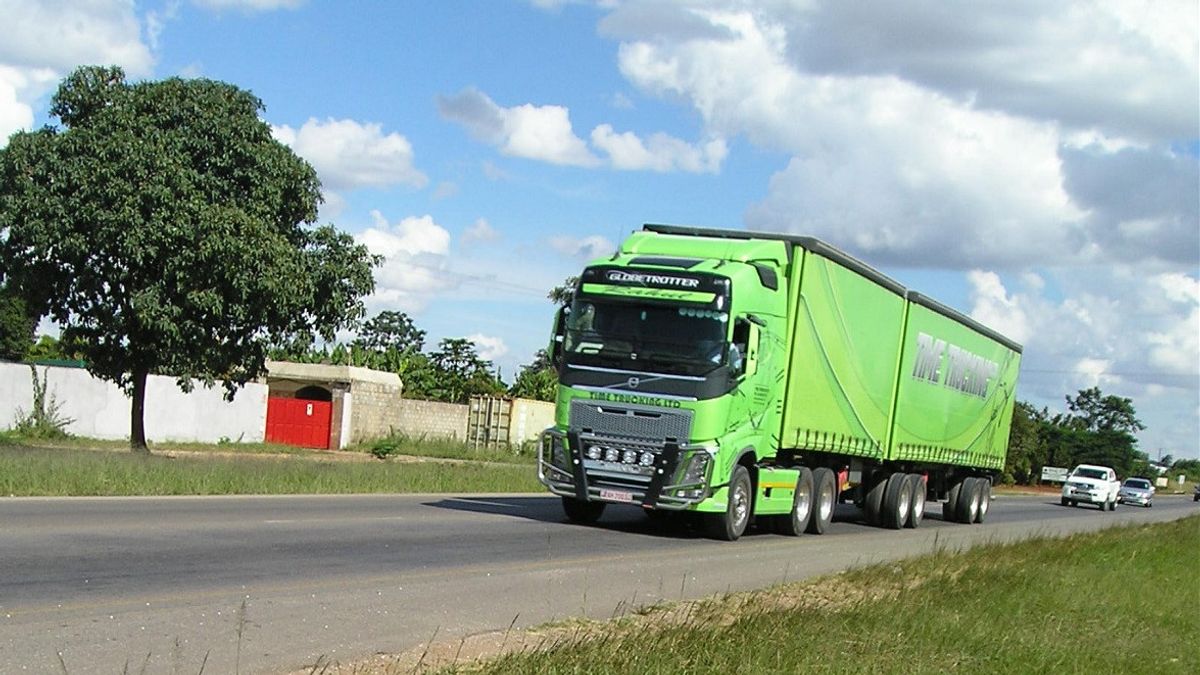JAKARTA - South Korea's military authorities are deploying troops to help transport containers, as the nationwide truck drivers strike continues and enters its seventh day.
South Korea's military operates about 100 cargo trucks sent by the Ministry of Transport to transport containers in and out of major ports including Busan, the Ministry of Maritime Affairs and Fisheries said.
According to Reuters, June 13, the military was sending containers to and from locations, particularly within short distances from ports, to free up space, the ministry said.
The military sends containers to and from locations mainly within short distances with ports to free up space, the ministry said.
South Korean truck drivers have been on strike since last week, saying they are fighting for their families' livelihoods, amid rising fuel prices and demanding minimum wage guarantees.
For example, Kang Myung-gil, who chose to park his truck last week and stopped transporting products from units of Samsung Electronics and other major South Korean companies to the port of Incheon, joined the strike that hit the industrial hub and port.
At stake is his family's livelihood, Kang said, as soaring fuel prices and other costs make it impossible to continue, while big businesses can bear the burden of charging higher prices to customers like himself.
Kang said in an interview he had no choice but to join the strike even though he was not a union member.
"When the other side of the world is getting better, why is our side of the world getting worse and worse?" He asked.
The move has crippled South Korean ports and cargo terminals, a major supplier of cars, batteries, semiconductors, smartphones and electronics, further straining global supply chains already disrupted by China's COVID-19 restrictions and Russia's invasion of Ukraine.
Working for 15 hours a day, the father of three claims to earn around US$2,300 per month. Meanwhile, since April, his monthly fuel bill has soared by around US$1,000.
The truck driver's lawsuit centers on an extension of the 2020 measure dubbed the 'Safe Truck Freight Rates', which ensures minimum payouts and is due to expire this year.
Unions say the measure is important to ensure truck drivers work in sustainable conditions. As independent contractors, they say it keeps up fluctuations in fuel prices and exploitation by powerful businesses.
The new government under President Yoon Suk-yeol said it was up to truck drivers to negotiate a deal with bosses and the opposition to extend minimum wage guarantees.
"The most frustrating thing is that I have followed all the rules, such as installing low-emission equipment, even by paying more money if I need to. But why is the situation torturing me now and why am I letting things be taken away?" Kang revealed.
In 2019, he was paid 280,000 won for a 240 km (149 mi) round trip, between Incheon and Samsung's display panel factory in Asan, although other truck drivers hired by a high-ranking subcontractor were paid 320,000 won for the same trip.
Under the minimum fare scheme introduced in 2020, freight fares increase to around 350,000 won for all truck drivers including non-union drivers.
The price of diesel at gas stations was 1,960 won per liter in May 2022, compared with 1,340 won the previous year, a 46 percent jump. The urea solution, mandatory for diesel vehicles, has doubled in price since the supply crisis in November, drivers said.
The English, Chinese, Japanese, Arabic, and French versions are automatically generated by the AI. So there may still be inaccuracies in translating, please always see Indonesian as our main language. (system supported by DigitalSiber.id)








